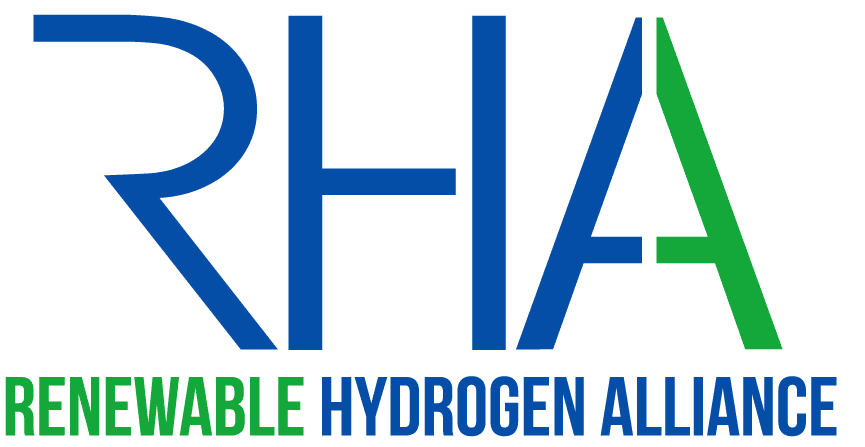FAQ
Renewable hydrogen is made by passing renewable electricity through water to separate H₂O into hydrogen and oxygen. Instead of fossil fuels, renewable hydrogen uses surplus wind and solar energy to create hydrogen that can be used for power generation, transportation fuel and industrial processes.
There are many potential uses for hydrogen fuels. However, if we are going to meet our emission reduction targets, it will be important to leverage the best uses of many different low-emission energy sources.
For example, solar and wind energy are great technologies for producing clean energy but when it is cloudy or there is little wind, production slows. Similarly, when it is windy or sunny sometimes supply can exceed demand.
That is where hydrogen comes in. Excess wind and solar can be used to create hydrogen that can be stored to generate clean energy on those cloudy days or during periods of peak demand.
Renewable hydrogen production uses modest amounts of water compared with other fuels. Roughly four gallons of water are needed to make a kilogram of hydrogen, and about half the water is used to create an equivalent amount of gasoline for transportation.
One-half to two-thirds of the water used in production is regenerated when hydrogen is consumed at the point of use and released as pure water through vehicle tailpipes or collection systems.
The US currently handles ten million metric tons of hydrogen annually, at least as safe, if not more so, as other fuels. Just like we have for natural gas and propane, safety precautions are already in place for hydrogen. Hydrogen is highly flammable but also non-toxic, colorless and odorless. Higher pressures in hydrogen vehicles and fueling stations call for enhanced safety precautions, such as two-way communication between the fueling pump and vehicle fuel tank, along with sensitive leak detection and monitoring.
According to NASA climate scientists, “Some people mistakenly believe water vapor is the main driver of Earth’s current warming. But increased water vapor doesn’t cause global warming. Instead, it’s a consequence of it.”
Carbon dioxide from human emissions is responsible for a third of the Earth’s warming. Eliminating carbon emissions remains the most critical policy objective to reduce the impacts of climate change.
Renewable hydrogen can help reduce or eliminate carbon emissions from energy-intensive sectors of the economy like transportation, power generation and industrial processes.
5 things to know about hydrogen
Hydrogen is the most abundant and lightest element on earth.
Hydrogen and fuel cells can be used in a broad range of applications.
Fuel cells are similar to batteries in that they produce electricity without combustion or emissions.
Similar to today’s gasoline vehicles, fuel cell electric cars can have a driving range of more than 300 miles on one tank of hydrogen fuel (about 6 kg in a passenger vehicle).
More than 50 public retail hydrogen fueling stations are online, and over 14,000 fuel cell electric vehicles and 66 fuel cell electric buses are on the road in California.
Hydrogen progress on a
national level
In August 2022, President Biden signed the Inflation Reduction Act that included the first ever production and investment tax credits for clean hydrogen. Production tax credits are tiered based on the carbon intensity of the hydrogen produced and range from $.60/kg to $3.00/kg with a bonus applied for meeting labor standards and other requirements. It is expected that these tax credits will significantly reduce the cost of clean hydrogen and more quickly than the Infrastructure Investment and Jobs Act (IIJA) funding would do alone.
Becoming a
member matters
RHA has had phenomenal success since our founding in 2018 in breaking down barriers to growing a successful renewable hydrogen industry in the Northwest with dozens of legislative victories under our belt. Our work is key to helping states in the region meet their climate protection goals. We help grow businesses, create jobs, and reduce pollution for all people and communities across the region. If your organization is not a member of RHA, please consider joining—help us be the voice for developing clean fuels that transition the economy to a zero emissions future.
